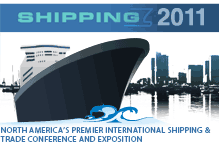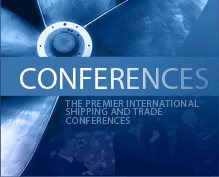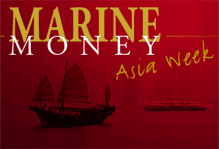
The Reefer Sector: Ripe for Recovery & Consolidation
by Nicolai Heidenreich
Over the last 12 months the refrigerated cargo, or reefer, industry has undergone important changes in ownership structure. Brought about by two years of coping with poor freight rates and struggles to cover opex and debt service, many owners have decided to either leave the business or tie their ships up on a best effort basis. As a result of shifting market dynamics, we anticipate a significant improvement in freight rates and values over the next 24 months. The purpose of this article is to provide readers with an overview of the reefer business and the specific reasons why we are so bullish on the sector. We will conclude by arguing that the reefer industry might be among the next members of the dysfunctional shipping family to tap the non-traditional capital markets.
Distinguishing Reefers
Those who learn through association would be well advised to compare the reefer sector to the liner or chemical trades. Like its liner and chemical counterparts, the reefer industry is dominated by a few major players with the five largest reefer pools/operators controlling 58% of the market for reefer vessels over 350,000 cubic feet. (See table 1 and 2 at right). The reefer pools are essentially marketing entities which do not own the majority of the tonnage but instead generate revenue on the basis of the freight rates they are able to negotiate with the charterers. These marketing entities have long relationships with the clients, which is one of the reasons why the reefer industry is less attractive to independent asset players with a short term view. This relatively institutional environment, coupled with an uncertain and illiquid sale and purchase market, has also served to discourage speculative ordering which typically outstrip any sustained period of relatively strong demand.
Continue Reading
IS IT FOTON FINANCE OR PHOTON PHINANCE?
University disciplines these days broadly divide into no science, soft science, hard science and theoretical science. Departmental separation obscures the fact that all knowledge is one. No where is this more evident than in the fact that theoretical physicists use abstract math and the world’s fastest computers to arrive at the same conclusions about matter and origins of the universe as some of the world’s greatest philosophers. The similarity between archaic definitions of physics and philosophy is remarkable, physics being defined as the “study of natural philosophy” (American Heritage Dictionary, 1973).
Armed with this kernel of wisdom, MM set out on its own mission of discovery. We wanted to know what it is about shipping banking that appeals to “rocket scientists” like MIT-educated Mr. Hamish Norton, recently of Lazard Freres & Co., who had a promising career in nuclear physics ahead of him before opting for the arcane, surreal world of shipping finance. We surprised even ourselves by finding some similarities that refute the notion that these are totally unrelated disciplines. Continue Reading
The Future of Greek Shipping in the New Millennium
A Six Part Series
on Greek Shipowning
by Kevin Oates
ISM. Consolidation of the shipping industry. OPA 90. Credit crunch. Shipping crisis. All these are issues that have at various times been regarded as potentially bringing about the demise of Greek shipping. But few Greek shipowners have failed to come through. Most have weathered the economic and regulatory storms (some, it is true to say, are still weathering it) and today we find ourselves having entered the new Millennium with the Greek shipping community as enthusiastic as ever about the industry which they have championed for centuries.
Starting in February and in the months ahead, Marine Money will profile shipping companies that we think represent the spectrum of Greek shipowners. From cash rich to cash poor, big to small, modern to less modern, we will look at how the companies have been financed historically and whether they anticipate using alternative financing techniques in the period ahead. Is traditional commercial bank finance still the way ahead for Greek shipowners in this category? Some owners are now growing their businesses such that on a consolidated basis the balance sheet is beginning to look more attuned to what is required by the capital markets. Is this the direction some of these companies will go? Are they likely to succeed? Our series on Greek shipowners is a must read for anyone involved in the shipowning and ship finance.
Continue Reading
Total Fina Pays for Erika: Would a Vulture Bondholder?
By far the grimmest stories out of the New Year turnover had nothing to do with Y2K plagues, but were instead of oil spills, along the French coast and in Turkey. More than 17,000 birds have been oiled along 300 kilometers of France’s south Breton coastline. The New York Times in its first Sunday edition of the new millennium ran a quarter page picture of an oiled cormorant; an “innocent bystander” picked up on Turkey’s Florya coast. Not a great start for the tanker industry.
It seemed as if oil were everywhere. The two incidents are dramatically different linked only by the series of deadly storms that have ravaged so much of the European continent the past weeks. About all that can be safely stated today is that there will be a fall out from the two disasters that will reach far into the fabric of the industry.
Together the two spills involved 32,300 tons of oil (Erika carried 28,000 tons and the Volgoneft 248 carried 4,300 tons). To date an estimated 8,000 tons (2.4 million gallons) have spilt from the Erika and 1,300 tons have spilt from the Russian vessel. More than 23,000 tons remain on the two stricken vessels.
Continue Reading
ENTERPRISES SHIPHOLDING CORPORATION: Walking the Tightrope
by Kevin Oates
For reasons set forth below, we believe that there is a good chance that there will not be available cash for Enterprises Shipholding Corporation (“Enterprises”) to pay the next high yield bond coupon due in May 2000 of $7.75 million. If we are correct, this will present Enterprises with a choice of three options. Firstly they could pay the coupon using “outside” cash – by further encumbering vessels, by selling vessels or by injecting fresh equity. Secondly they could ask the bondholders for a modest restructure – perhaps a coupon deferral – until such times as the market improves and the new deliveries scheduled during 2000 and early 2001 are earning much needed cash flow. Or thirdly they could try to negotiate hard with the bondholders and buy out perhaps with a cents per dollar scenario but risk losing the company they have worked so hard to develop.
Enterprises Shipholding Corporation raised $175 million of high yield paper in May 1998 as a quality company with strong management and a healthy balance sheet. They were as close as you could get within Greek shipping to an industrial shipping group. They were perceived to be a company that was going places and having already experimented with an aborted IPO a high yield bond issue seemed a natural step. Two years later many things have changed. The company has become an example of how the interests of shareholders are often poles apart from the requirements of servicing debt.
Continue Reading
Freshly Minted – December 2, 1999
LAZARD SHUFFLE Veteran shipping investment banker Hamish Norton left Lazard Freres, and indeed the shipping industry, yesterday to join the technology group at investment bank Bear Sterns. Lawyer and presidential confidante Vernon Jorden joined Lazards this week, though it is unclear whether even Mr. Jorden is diplomatic enough to work with shipping investors. Mr. Norton told us that the technology group at Bear Stearns has particular expertise in the areas of software and aerospace. While there is very little capital markets deal flow for shipping at the moment, in our view the field of maritime investment banking will be a bit less crowded when shipping deals start getting done again.
HIGH YIELD HVIDE
After successfully rebutting a few criticisms of its plan of reorganization, Hvide Marine now has just one more date with the bankruptcy judge, on December 9th, and looks set to emerge from bankruptcy just in time for Y2K to erase all reams of documentation. We understand that Deutsche Bank is arranging the exit financing. The structure of the reorganization has been well covered in Freshly Minted, so search the FM Archive for details. Those with sharp pencils and a penchant for penny stocks might want to take a look at Hvide common stock. The shares presently trade on the OTC Bulletin Board at around $0.13. Under the plan of reorganization, holders of common shares will receive a warrant for 1 new share of Hvide for every 124 old shares of Hvide held (about 8:1000). Old shares will be cancelled and warrants will have a strike price of $38 and expiration date 4 years from date of issue. Give us a call if you would like to take a look at Hvide’s pro forma 12.31.99 balance sheet which uses “Fresh Start Accounting” (i.e vessels have been written down from book to current market value). Continue Reading
Tonnage Tax : A sea change in UK shipping taxation
by Chris Morgan and Alastair Munro
It is a common place statement that the UK shipping industry has been in decline for the latter part of this century. There are many reasons for this trend, but this article focuses on the impact of fiscal policy on the decision as to where to locate a shipping business.
Successive Governments have understood that it is difficult for the British industry to compete with companies operating from countries which have the double advantage of a less costly regulatory environment and a low (or nil) tax rate. Hence they have sought to protect British shipping interests by such measures as certain grants for training and by special tax deprecation rules which apply only to the shipping industry. Nevertheless, the approach has been largely piecemeal and has only slowed and not reversed the decline. It is therefore a great relief to see that the present Government has taken this situation seriously by promising to introduce an entirely new regime – a tonnage tax regime – which will provide an effective low tax environment in the UK.
Continue Reading
A Primer on lng Seaborne Transport: What Every Owner Should Know
by Geoff. Uttmark
What is liquefied natural gas?
Natural gas is an abundant fossil fuel composed of between 95 and 99 percent methane and other hydrocarbons such as ethane, butane and propane, along with trace elements and compounds. While the composition of common gas varies between gas fields, the liquefaction and regasification process of LNG produces a very consistent high grade fuel (Figure 1). LNG is used to generate electricity, for home heating and cooking and increasingly to fuel vehicles. As the cleanest fossil fuel, natural gas is increasingly the preferred option to meet rising energy requirements through the first half of the 21st century, by which time renewable energy sources such as solar power and fusion are expected to be more viable. Hence, natural gas consumption is expected to grow faster than the overall growth in energy demand for the next several decades.
Continue Reading
Lighting the World
A bit odd how after so much time, a lot of the world is still trying to find the switch to keep the lights on. The holidays are here again, shorthand for “Holy days”. Judaism celebrates Chanukah, the miracle of the Temple’s menorah burning for eight days on one day’s supply of oil, hence, the Festival of Lights. Christianity celebrates Christmas, the birth of Christ, the “light of the world”. Bible scholars debate spiritual tenets of the great religions, but to simple laymen, Chanukah and Christmas offer a glimpse into a practical difference between Judaism and Christianity when it comes to lighting. Jerusalem, it would appear, preferred overland transport to bring it oil because round trip sea voyages of that time far exceeded the eight days that were needed to re-supply the Temple. Christendom, on the other hand, seems to have preferred carrying its light to the world largely by sea transport. This can be inferred from evidence that suggests Jesus’ secular occupation before beginning His ministry might not have been carpenter but rather, boat builder. Continue Reading
Searching for Solid Investments in LNG, Humpuss Funding Co. and Osprey Maritime
by Geoff Uttmark
As the expression goes, it is an ill wind that does not blow some good. Hence the recent nuclear accident in Taikomura, Japan is likely to push the energy resources poor industrial giant further in the direction of LNG to refuel its economy. This is a very Asian business proposition, chock full of “mutual benefit” for LNG exporters and for some of Japan’s largest shipyards. Hitachi, IHI, Kawasaki, Mitsubishi and Mitsui are all members of the most elite commercial shipbuilding club in the world. Any discussion of LNG these days must start with Japan, which represents almost sixty percent of total global consumption, but that is not the end of the story. As the statistics in Figure 1 attest, Japan may be the world’s biggest LNG importer, but the dizzying growth rates in demand belong to the two other major Asian importers, namely, South Korea and the Republic of China. And other economies in the Indo-Pacific region, such as India, PRC, Thailand and the Philippines, are just beginning to move from flirting with LNG to serious courtship. It is clear in retrospect that LNG was the dietary mother’s milk that grew some of the “tiger cub” economies so quickly. Continue Reading







